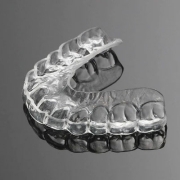Will My Newly-aligned Teeth Always Stay in Position?
Imagine if you got your braces off, revealing gorgeous, straight new teeth, only to find that a few months later your teeth are stubbornly going back to the way they were before? That would be beyond painful. Ordinarily, when you undergo orthodontic treatment, your newly aligned teeth will behave, meaning they’ll stay in their new position. However, there are cases where teeth begin to migrate, as it were, back toward old positions. Learn more about why this happens in rare cases.
Why Do Teeth Shift After Braces or Aligners?
Teeth aren’t fixed in place like you might think. They’re actually held by ligaments and bone, and those two things have the capability of adapting and changing. It’s why orthodontic treatment in Fort Myers, FL works in the first place. If teeth couldn’t move, then braces wouldn’t have any effect.
Now, after braces or clear aligners are removed, the surrounding tissues need time to stabilize which, in most cases, makes the new alignment permanent. But without proper retention, teeth could possibly, gradually move back toward their original positions, a process called relapse.
How to Keep Your New Alignment
The most important step in maintaining alignment is wearing a retainer as directed by your orthodontist. Retainers help hold teeth in place while the surrounding bone and soft tissues adjust. Some patients may need to wear a retainer full-time for several months before switching to nighttime use. Skipping or forgetting to wear it increases the risk of relapse.
Other ways to maintain alignment include practicing good oral hygiene, avoiding excessive pressure on teeth, and keeping up with regular dental visits. If minor shifting occurs, your orthodontist in Fort Myers, FL may recommend adjustments or a short-term retainer treatment.
While orthodontic treatment can provide a beautifully aligned smile, long-term retention is key to keeping teeth in position. With proper care and a commitment to wearing a retainer, you can enjoy the results of your orthodontic treatment for the rest of your life!





